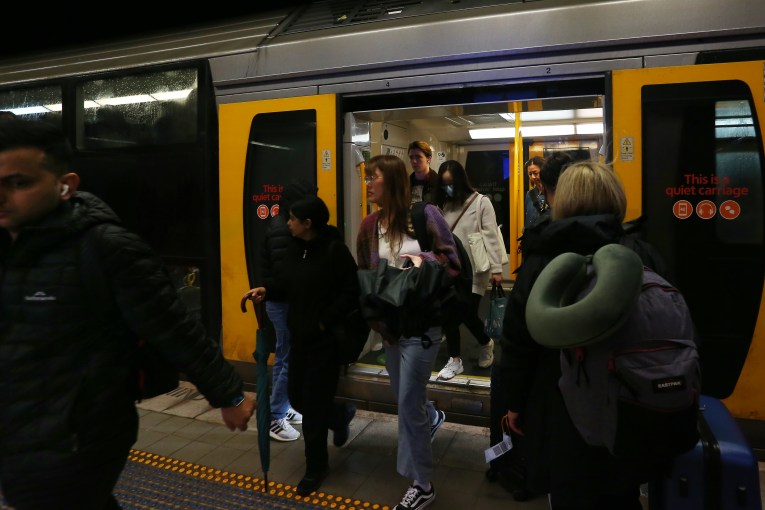Dennis Atkins: The four major societal issues Morrison needs to address, but won’t

Forget the tropical storm of Budget ‘drops’, let’s look at four things that aren’t up for a mention: climate change, insecure work, child care and social housing.
These might be outside the action-driven agenda the Prime Minister pursues relentlessly but they do represent glaring needs.
These are serious policy vacuums with real social impact.
Climate Change
The government has refused to make a firm commitment to net zero emissions by the middle of the century.
The 2050 target that will remain top of the international climate policy agenda – and was due to have been endorsed by the now postponed United Nations conference in Glasgow.
Morrison is putting his bets on gas as the pivotal transition fuel to lower emissions. The proven benefits of acting more directly and vigorously on climate change are impossible to ignore.

More than 800 coal seam gas wells are proposed for the Pilliga region.
“Climate change action … has repeatedly been found to pass traditional cost-benefit tests. The solutions are known to already be available and effective if deployed in time,” writes Anna Skarbek, CEO of ClimateWorks.
“What’s more, new research – with Nobel prize winner Joseph Stiglitz and leading climate economist Nicholas Stern at the helm – shows climate mitigation actions deliver maximum economic growth multiplier benefits from a stimulus perspective.
“It found spending on new green energy projects generates twice as many jobs for every dollar invested, compared with equivalent allocations to fossil fuel projects.”
Social housing
Social housing has been an unmet need in Australia for the seven years the Liberal-Nationals coalition has been in power.
In fact, the infamous Joe Hockey budget in 2014 undid the work on homelessness undertaken by the Rudd and Gillard governments.
“One of the best investments a government could make during a pandemic is in Australia’s flagging social housing system,” according to a recent report from the Melbourne University.
“It’s an investment that would change the lives of thousands of Australia’s most vulnerable households and is exactly what our economy needs right now.”

Opposition leader Anthony Albanese says investing in infrastructure and social housing is vital to the economic recovery.
This report says investment in social housing keeps construction workers employed in an industry that experienced dramatic reductions in projects during the pandemic.
“This investment also supports many businesses that rely on the housing sector, like material suppliers, household goods manufacturers and consultants,” says the Melbourne University team.
“It concentrates expenditure on domestic production and procurement policies that can help to ensure that local content and workers are prioritised.”
Childcare
The government intervened earlier in the year to bail out the childcare industry and help those needing to maintain access to care who were severely impacted by the pandemic restrictions.
These measures have been wound back with some conditional safety net arrangements. But generally the government wants to snap back to the old system, citing increased demand for services.

A previous report has called on the government to increase childcare subsidies to boost female workforce participation.
However, there is a compelling case for greater government involvement in childcare, even if it’s not at the temporary level of this year.
While COVID-19 restrictions have caused very high unemployment and underemployment, the transition back to work for many families is likely to be irregular and unpredictable.
“A sharp ending of the emergency measures may leave many families unable to access care when they need to get back to work,” according to a report from the Mitchell Institute at the Victoria University.
“On top of this, children’s routines have been disrupted, increasing levels of isolation and anxiety. Many children not previously considered vulnerable will now fall into this category or become potentially vulnerable.
“High-quality early childhood education can help reduce the risk of vulnerability.”
Insecure work
The last area which the coming Budget is unlikely to address is insecure work, something which has been shown during the pandemic to be as much of a health issue as it is an economic one.
The ACTU has been at the forefront of a campaign to keep insecure work in the minds of policymakers, although the silence from the Morrison Government is starkly obvious.
In a recent report for the Evatt Foundation, ACTU president Michele O’Neill outlined how insecure work has been entrenched in the current arrangements, citing the use of labour hire companies, short-term contracts, the replacement of full-time employees with part time labour and contracting temporary visa holders as frequently used methods of making the workforce even more casual and precarious.
“The coronavirus crisis exposed fault-lines in Australia’s economy, labour market and OHS system,” wrote O’Neill.
“It has plunged millions of workers into unemployment or job insecurity and has hit some of the most disadvantaged workers the hardest. We needed a response to the crisis that addressed the direct impacts of the virus, but which also acknowledged and addressed the pre-existing weaknesses in our economy and society.
“We have the opportunity to address these issues not with a return to pre-COVID trickle-down thinking, but with an ambitious, aggressive, government-led effort to rebuild the economy and put Australians back to work in secure jobs.”
These are just a handful of ideas that are being promoted in response to the COVID pandemic – many addressing challenges that existed before COVID – and should be the target of policy responses in the Budget next week.








